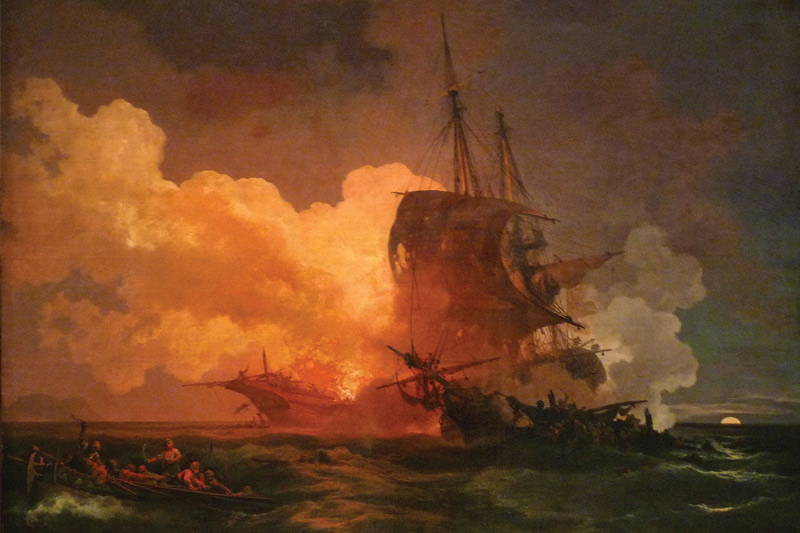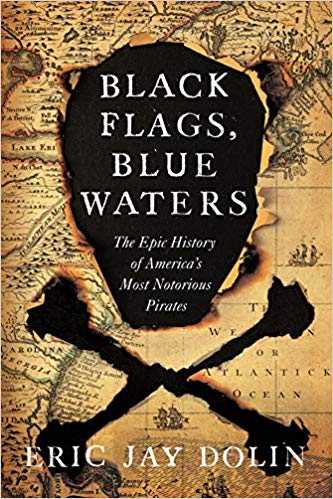 We’re fascinated with pirates. We glorify them and their exploits. We make movies and video games about them. The more committed among us celebrate “National Talk Like a Pirate Day” every September. Somewhere along the way, we have even conflated the Key West and Jimmy Buffet lifestyle with pirates. Chances are someone on your dock has a Jolly Roger flying from their mast, hopefully embracing the modern caricature and not the harsh reality of pirate life.
We’re fascinated with pirates. We glorify them and their exploits. We make movies and video games about them. The more committed among us celebrate “National Talk Like a Pirate Day” every September. Somewhere along the way, we have even conflated the Key West and Jimmy Buffet lifestyle with pirates. Chances are someone on your dock has a Jolly Roger flying from their mast, hopefully embracing the modern caricature and not the harsh reality of pirate life.
In modern popular culture, pirates are charismatic sailors with a taste for rum and an endless passion for treasure. The real history of pirate culture is far nastier, brutish, and dirty than any modern portrayal would suggest, however. And the political and economic conditions that gave rise to piracy on the high seas is a fascinating study in history repeating itself. There are many lessons to be learned from Eric Jay Dolin’s epic book Black Flags, Blue Waters.
I am not immune to the popular fascination with pirates. Their nautical accomplishments, notorious excess, and cultural impact fascinate me. When Dolin’s book came across my desk, I devoured it in one sitting.
Part piratical history and part political analysis, this book is a must read for any sailor, history buff, or student of politics. The clear thesis of much of the book is that in the absence of clear governmental regulation and control, and with the wink-and-nod backing from kings and queens, piracy rose to fill any gaps in commerce and warfare that arose in the rapidly expanding world. The way the book is crafted makes it impossible not to see the modern parallels to, say, private military contractors carrying out missions that official armed forces are prohibited from engaging in. Working outside the law with the implicit support of those within the law is apparently a time-honored tradition in the military.
Dolin does an excellent job of using narrative to frame the history of piracy and show, rather than explain, how pirates rose to immense power in the late 1600s and early 1700s.
There have always been those who live and work outside the law. In Western US culture, bandits robbed stagecoaches and pillaged their way across the plains. On the seas in the 17th century, a few opportunistic men made their living robbing ships full of valuable cargo. Early shipping was so confined to tradewind routes that any unarmed ship was at the mercy of any vessel with more manpower or firepower.
 As the age of sail progressed, however, more and more experienced sailors chose to “go pirate,” foregoing the hard work and low pay of traditional maritime work for the relatively better treatment and greater paydays. Meanwhile, standing navies were stretched thin. As wars consumed the energy and resources of the British, Dutch, and Spanish, pirates preyed on ships loaded with gold, silver, and spices coming from the Caribbean and, eventually what is now the eastern seaboard of the United States.
As the age of sail progressed, however, more and more experienced sailors chose to “go pirate,” foregoing the hard work and low pay of traditional maritime work for the relatively better treatment and greater paydays. Meanwhile, standing navies were stretched thin. As wars consumed the energy and resources of the British, Dutch, and Spanish, pirates preyed on ships loaded with gold, silver, and spices coming from the Caribbean and, eventually what is now the eastern seaboard of the United States.
If pirates were opportunistic thieves, those who relied on their services were equally opportunistic. Virtually cut off from Europe, the American Colonies relied on pirate vessels to bring bootleg materials in order to support their growing population. When anything was banned or otherwise unavailable, pirates delivered. It did not take long, however, for the colonies to grow weary of the lifestyle that pirates brought with them, and by the 1720s they had worn out their welcome in New England.
Dolin characterizes and humanizes those men who turned pirate. We get compelling stories about the most famous of them: Blackbeard, Henry Morgan, and Stede Bonnet.
This book is a remarkable piece of historical writing, as we know almost nothing from pirates themselves. For fairly obvious reasons, most pirate captains refrained from keeping accurate logs or diaries. Dolin’s book is pieced together through painstaking research, second-hand accounts, and other narratives. The references used in this book are a lifetime of reading for the non-academics among us.
Modern caricatures of pirates, portrayed most famously by Johnny Depp as the fictional Captain Jack Sparrow, are surely based on bits and pieces of reality. But as Dolin carefully and fully exposes, the men who captained pirate ships were part entrepreneur, part opportunist, part sadist, and part military leader. And, in studying how pirates were virtually eliminated from the oceans of the world, there are lessons to be learned about modern geopolitical problems.
It takes a concerted global effort to stamp out an enterprise like piracy (or modern-day drug smuggling). When any major power allows, endorses, or actively supports such lawlessness, it will continue, as piracy did until England, most notably, had enough.
If you aren’t already interested in pirate history, this book will both whet your appetite and give you an incredible knowledge base from which to continue your exploration.


